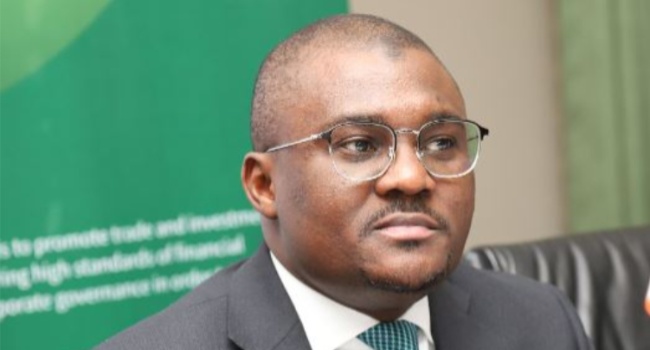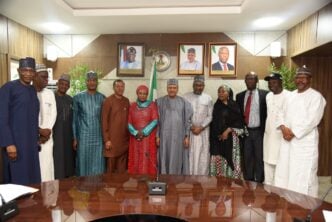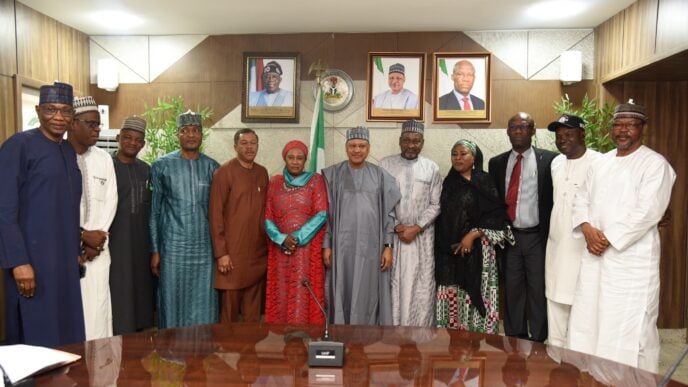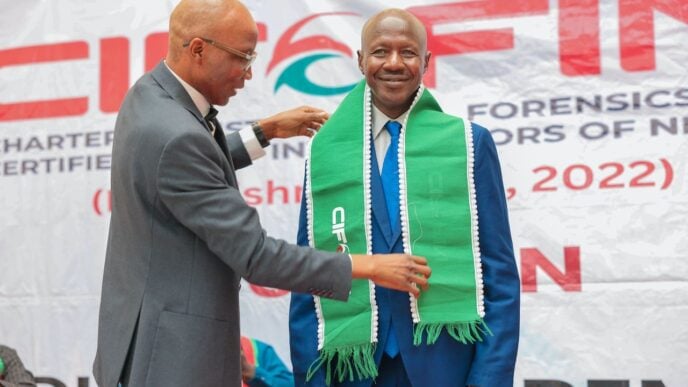Rabiu Olowo, FRC’s chief executive officer (CEO)
The Financial Reporting Council of Nigeria (FRC) says it is committed to collaborating with civil society organisations (CSOs) to promote accountability, transparency and compliance with corporate governance standards.
Rabiu Olowo, the executive secretary of the council, spoke in Abuja on Wednesday during a one-day capacity-building workshop organised by the New Era for Sustainability Leadership and Accountability Initiative (NESLAI).
The event brought together stakeholders from the public and private sectors, as well as civil society groups involved in financial governance and oversight.
Represented by Titus Osawe, coordinating director at the FRC, Olowo said the council monitors compliance with financial reporting standards, corporate governance and sustainability codes.
Advertisement
“We find this very useful because we saw a group that is interested in what we do,” he said.
“At the Financial Reporting Council, we monitor compliance with financial reporting standards, corporate governance and sustainability codes. When we see an organisation like NESLAI ready to push the narrative through advocacy, we are keen to collaborate.”
Olowo said civil society has played an important role in developing frameworks such as the 2018 Nigerian code of corporate governance for the private sector.
Advertisement
He added that CSOs are also involved in drafting a governance code for not-for-profit organisations, which is expected to be completed this year.
Edwin Oluwafemi, executive director of NELSAI, said civil society is an essential actor within Nigeria’s accountability system.
“Your role in bridging government, the private sector and communities gives you a unique position to influence compliance with financial reporting standards across the board,” Oluwafemi said.
He reminded participants that good governance is a legal responsibility under the FRC Act of 2011 and the Companies and Allied Matters Act (CAMA) 2020.
Advertisement
“The training is designed not only to enhance the capacity of CSOs but also to empower them to lead by example by upholding the highest financial reporting standards within their own organisations,” he added.
Richard Otitoleke, programme coordinator of the initiative, said the goal is to build the technical capacity of credible CSOs to hold institutions accountable.
“This initiative ensures that private and public companies meet global best practices,” he said.
Opanachi Jacob, national coordinator of the Africa Poverty Alleviation Initiative, described the workshop as timely and impactful.
Advertisement
“It sharpens our skills to approach financial reporting based on both international and domestic standards, especially in monitoring procurement processes,” Jacob said.
“With this, CSOs can better hold institutions accountable and reduce leakages that fuel corruption.”
Advertisement
Ogakwu Dominic, chief of the Civil Society Groups for Good Governance (CSGGG), said the initiative underscores that accountability goes beyond government.
“This initiative is commendable because it reawakens us to the fact that accountability is not only for government institutions but also for the private sector and individuals,” Dominic said.
Advertisement
“Every company listed on the stock exchange needs to be accountable to Nigerians. Corporate governance is very essential. You cannot say, because it is your private business, citizens should not ask questions.”
Advertisement











